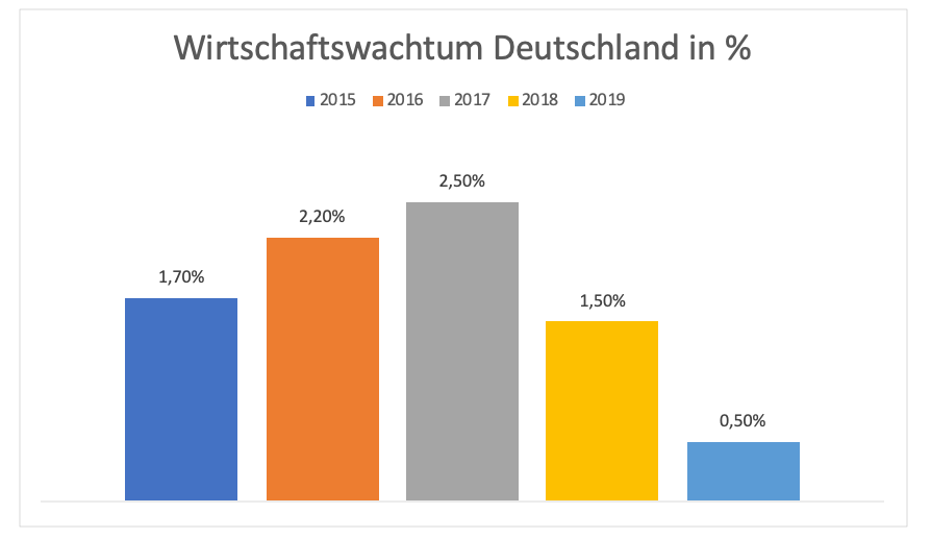I noticed that I started my professional life at a time when things were only going uphill. A typical phenomenon of Generation Y, who grew up in times of high security and growth. The statistics show that Germany has been growing steadily since I started my career.

During this time, I learned from executives and mentors how to scale an organization and build it up so that it can grow. It was invested, risked and won. At that time I was closely watching the leaders and trying to learn so that maybe one day I could get into such a role myself. I have been a manager myself for 8 months now and have been able to implement many of the strategies. But I was never prepared for one thing: Corona – management strategies in times of crisis.
The difference: decision-making culture instead of waiting culture!
In times of growth, I had always had the feeling that managers tend to put off particularly conflict-prone decisions. The reason was clear: the numbers are constantly increasing and we’re doing fine! There was no need to introduce too strong changes but rather to scratch the surface. I base this experience on my three years as a management consultant, during which I accompanied numerous large corporations.
What was the result? There is no decision-making culture. Questions about the future were not actively approached; there was a culture of waiting and voting.
Changes are only successful if they are supported by the entire upper management level. In times of growth, this was often reserved for new opportunities and guaranteed sales increases. Even as a normal employee, it was impossible to strive for such changes without power. I’ve seen this many times when I introduced Scrum. As a coach it was often almost impossible, but as a department head you could easily take your first steps with the help of power.
Many were not prepared for a crisis
Many managers have lapsed since Corona due to little knowledge of one extreme to the other. The employees were correspondingly insecure. Somehow you had to stick to the numbers and show that as a manager you are actively making decisions again, which you have avoided for a long time.
What I now notice more than ever: Management needs time and energy to bring about changes consistently and every day. I was often disappointed that my leadership was not doing enough for the real changes and I spend a long time in the office or home office every day just to bring about the profound changes.
Corona needs doers and decision-makers again instead of waiting and voting! Real managers with clear ideas are needed, who make decisions and also help to implement them!
My tips from 3 months of crisis management
- Take advantage of market change : Corona is restructuring the market. We were able to successfully take advantage of the new opportunities offered by cloud services and still grow.
- Crisis as an occasion : The Corona crisis was the reason to initiate further necessary and very far-reaching changes, especially the cross-departmental cooperation.
- Management is hard work : Entrepreneurial changes can only be made with “power”.
- Implementing decisions : After the decision, I actively help to implement it to the end and do not pull myself out!
- Leadership is responsibility : It is up to me as a manager to maintain processes and sales as well as employee satisfaction.
- Resistance is always there: In every change process there are winners and losers. That is why there are always certain employees who actively fight the change.
- Get everyone involved : You can’t do it alone. Get others involved and ask for help and feedback. Build a change team around you.
- Give the stage : Let others become stars in the change. Let them introduce these parts of the change for the company and make it clear that you did not do it all by yourself.
- Pull yourself out : Once you have a new body or format in place, train and document it and have someone else do it. This gives you time to tackle new change processes.



